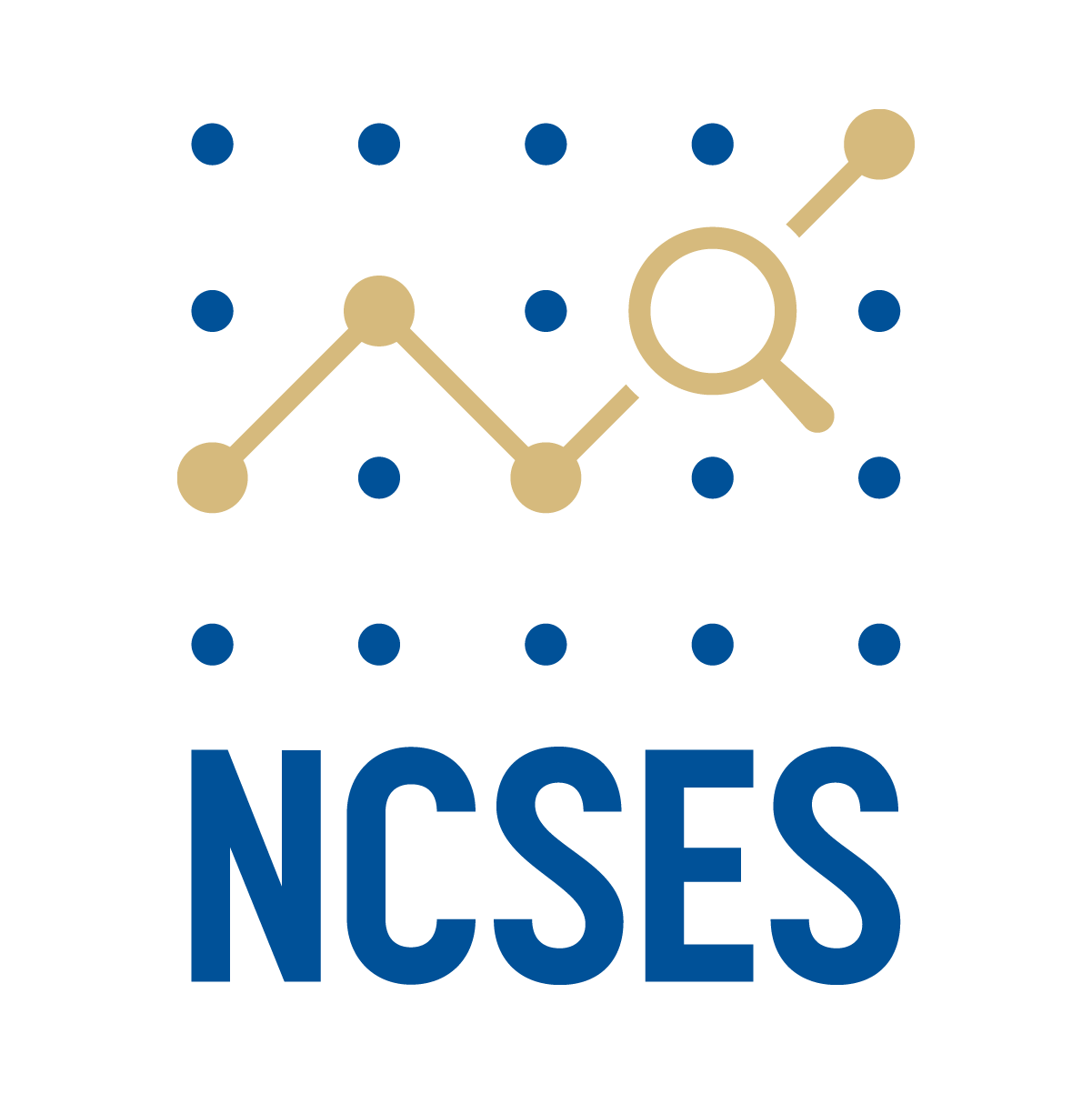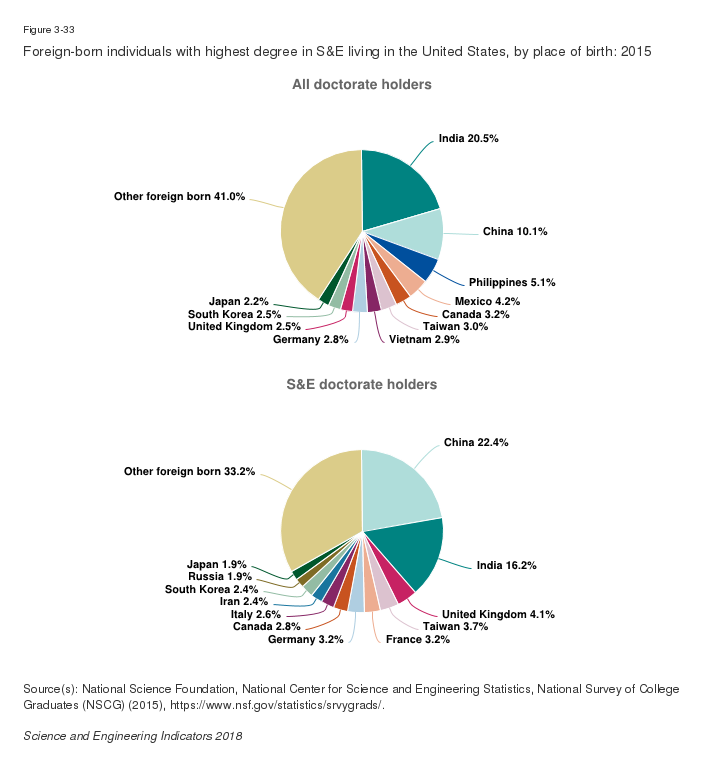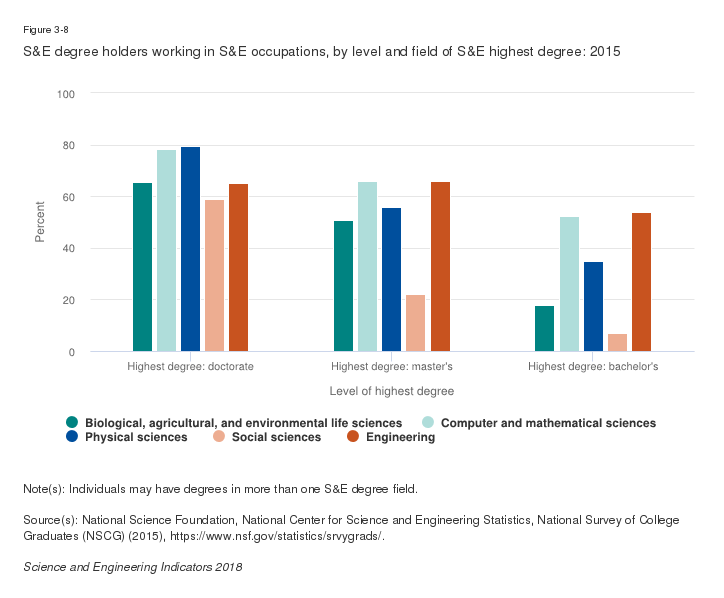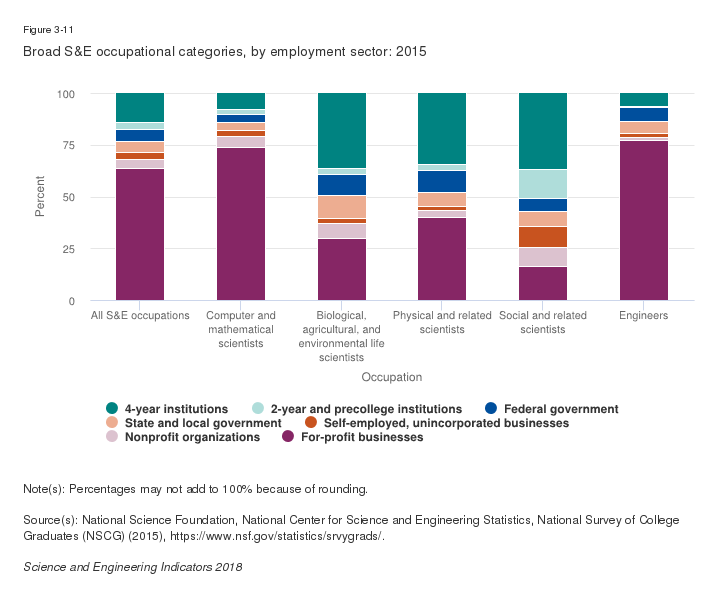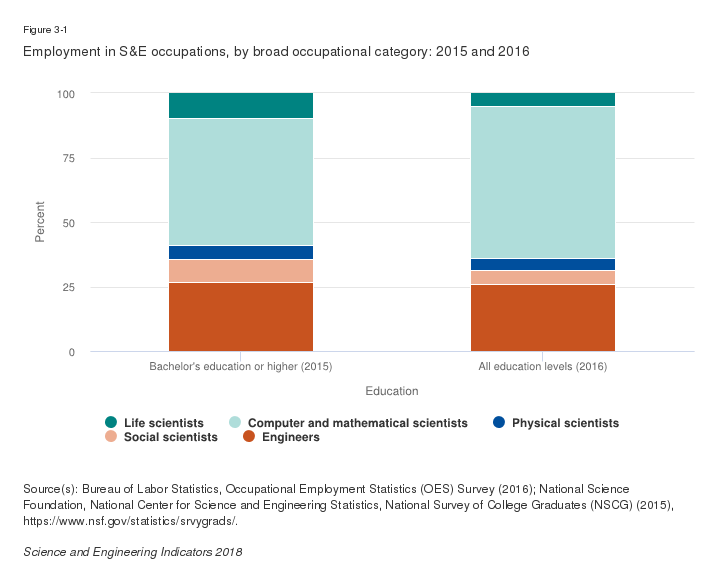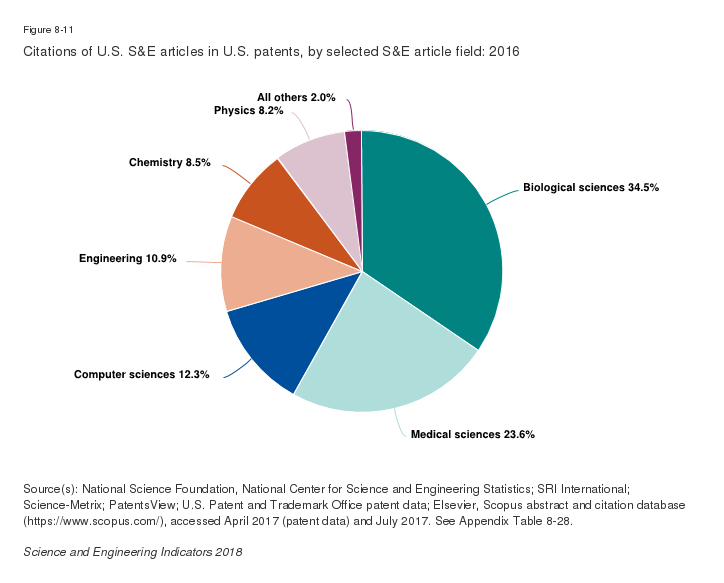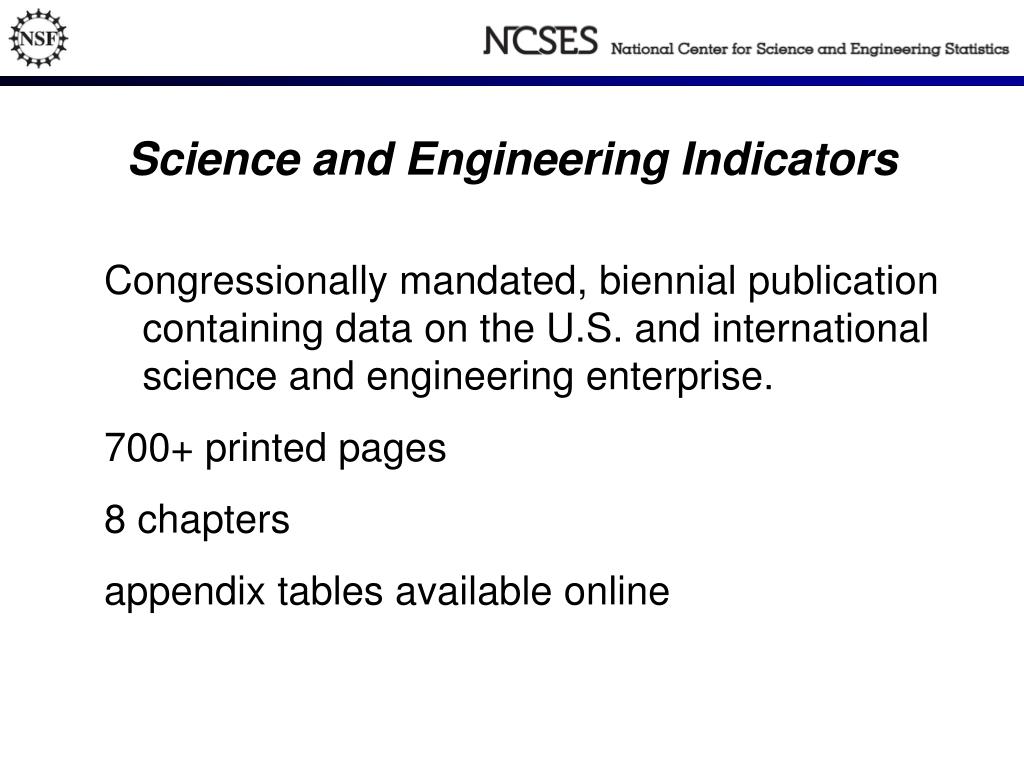National Center For Science And Engineering Statistics

Critical data gaps threaten US competitiveness in science and engineering. The National Center for Science and Engineering Statistics (NCSES) faces increasing pressure to deliver accurate and timely data amidst evolving global challenges.
The NCSES, a principal federal statistical agency within the National Science Foundation (NSF), is tasked with providing comprehensive information on the science and engineering enterprise in the United States. Its data informs policy decisions, resource allocation, and strategic planning across government, academia, and industry. This article examines the urgent need for bolstering NCSES's capabilities to ensure the US remains a leader in scientific innovation.
Data Imperative
The NCSES collects, analyzes, and disseminates data on a wide array of topics.
These topics include research and development (R&D) expenditures, science and engineering workforce characteristics, academic science and engineering, and innovation activities. Its surveys and analyses are crucial for understanding the dynamics of the US science and engineering ecosystem.
However, the rapid pace of technological change and increasing global competition are placing unprecedented demands on the NCSES.
Evolving Challenges
Emerging technologies like artificial intelligence, quantum computing, and biotechnology are reshaping the scientific landscape. Tracking these developments and their impact on the workforce and economy requires new data collection methodologies and analytical capabilities.
Global competition in science and engineering is intensifying, particularly from countries like China. Accurate benchmarking and comparative data are essential for assessing the US's relative strengths and weaknesses.
Furthermore, ensuring data security and privacy is paramount in an era of increasing cyber threats. The NCSES must maintain robust systems to protect sensitive information while facilitating data access for legitimate research purposes.
Critical Data Gaps
Despite its vital role, the NCSES faces significant challenges in meeting the growing demand for data.
One critical gap is the lack of real-time data on the science and engineering workforce. Existing surveys often lag behind current trends, hindering timely policy responses to emerging skill shortages or workforce imbalances.
Insufficient data on innovation activities, particularly in small and medium-sized enterprises (SMEs), limits understanding of the broader innovation ecosystem. This makes it difficult to assess the impact of government policies and programs aimed at fostering innovation.
Moreover, there is a need for more granular data on the diversity of the science and engineering workforce. Addressing underrepresentation and promoting equity requires detailed data on race, ethnicity, gender, and disability.
Addressing the Crisis
To address these challenges, several actions are needed to bolster the NCSES's capabilities.
Increased funding is essential to support data collection, analysis, and dissemination efforts. This includes investing in new technologies, such as machine learning and natural language processing, to automate data processing and improve data quality.
Enhanced collaboration with other federal agencies, universities, and industry partners is crucial for leveraging existing data sources and developing new data collection methodologies. Data sharing agreements and joint research projects can improve the efficiency and effectiveness of data collection efforts.
Strengthening data security and privacy protections is paramount. This requires investing in cybersecurity infrastructure, implementing robust data governance policies, and providing training for NCSES staff on data security best practices.
Improved data dissemination and accessibility are also critical. The NCSES should leverage modern technologies, such as interactive dashboards and APIs, to make data more accessible to a wider audience.
Consequences of Inaction
Failure to address these data gaps will have significant consequences for the US science and engineering enterprise.
Without accurate and timely data, policymakers will be ill-equipped to make informed decisions about science and technology policy. This could lead to misallocation of resources, missed opportunities for innovation, and a decline in US competitiveness.
Businesses will lack the information they need to make strategic decisions about R&D investments and workforce development. This could hinder innovation and reduce the ability of US companies to compete in the global marketplace.
The research community will be hampered in its ability to understand and address critical scientific and engineering challenges. This could slow the pace of discovery and innovation, and ultimately undermine the US's position as a global leader in science and technology.
Next Steps
The NSF and the NCSES are taking steps to address these challenges. This includes developing a new strategic plan that prioritizes data modernization and enhanced collaboration.
The agency is also working to leverage new technologies to improve data collection and analysis.
However, sustained investment and commitment from policymakers, the research community, and the private sector are essential to ensure the NCSES can fulfill its mission and support the continued success of the US science and engineering enterprise. The stakes are high, and the time to act is now.
